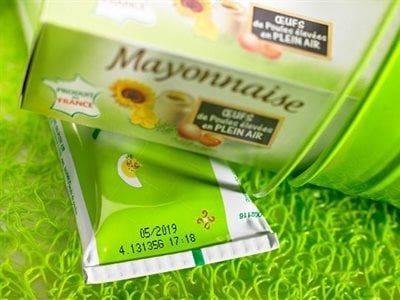Crown reveals why metal packaging is trending and discusses the trends and challenges facing the beverage industry
Veronique Curulla, marketing and business development director at Crown Bevcan Europe & Middle East talks to Packaging Gateway about the trends and challenges driving today’s drinks market and why metal packaging is increasingly the format of choice.
The European beverage market today is continuing to adapt and evolve at an accelerated rate due to the pandemic. Just a few short years ago, the beverage landscape looked considerably different from what we see today. New and exciting drinks concepts are breaking through with increasing levels of success – provided they meet the stringent criteria of today’s more well-informed consumer base.
Elements including health and wellness support are more important than ever before, particularly in light of the pandemic, which has further focused the minds of consumers on their own wellbeing, the sustainability of the products they buy and also new ways of consuming at home via e-commerce platforms.
Healthy drinks take the driver’s seat
A category that is seeing major growth is functional beverages. Some of these products may be defined as delivering tangible health benefits and improving performance energy.
Some also claim to help alleviate stress, aid rest and improve mental health. For example, functional waters are enhanced through the addition of vitamins, minerals, fruits or vegetables – to deliver a wide range of perceived health benefits. This market alone is set to achieve a CAGR of 7.9% in the EMEA region between 2020 and 2025 , and many major brands are seeking entry, either through mergers and acquisitions or by launching new offerings to the market themselves. Seeing the huge focus on this area globally, there is a high chance that these products will become increasingly popular in the European market.
The growth of non-alcoholic beverages
The mindfulness element is clearly having an impact on how people consume drinks, and this is particularly the case where alcohol is concerned. The non-alcoholic market is burgeoning and is predicted to grow at a CAGR of 4.95% to 2025 in terms of revenue. One brand that is leading the charge in new beverage options is Seedlip, which, in essence, has pioneered an entirely new drinks category with its non-alcoholic distillates.
Seedlip offers a rare flavourful and sophisticated alternative to spirits such as gin or vodka for example, and the company recently partnered with Crown to launch its RTD Seedlip and tonic cocktails in 25ml cans – a design that became a finalist at the Luxury Packaging Awards in November 2020. Nowadays, more brands are effectively seeking to offer more complex non-alcoholic alternatives, and the number of new products is flourishing.
The non-alcoholic beer category has also seen incredible growth – with the European market expected to reach a value of approximately $6bn by 2024. Brands such as craft brewer Brewdog have embraced the trend. Brewdog now produces alcohol-free versions of its iconic Punk IPA, Lost Lager and the entirely unique Nanny State. Today, it is rare for major beer brands not to have an alcohol-free option and the vast majority are available in cans. They are a convenient format for online shopping due to their robustness, provide good volume levels for sharing opportunities in the home, and also ensure the product reaches the consumer in the condition the brewer intended due to superior barrier qualities against both light and oxygen.
Finally, the US trend for hard seltzers is reaching the UK and is slowly making its presence felt across Europe’s shores. Often low in terms of alcohol by volume (ABV), they are also low in calories – which appeals to the health-conscious consumer looking to enjoy something different, outside of the soft drinks category – and many are suitable for a vegan diet, making them accessible to all of legal drinking age.
Packaging, of course, is a key element in the overall picture, and growth is steady. As it happens, new categories are mainly emerging housed in the design chameleon that is metal packaging, with its versatility in terms of form and sizing. Some of these new products are transforming the landscape as great alternatives for health-conscious consumers. From flavoured and enhanced waters, to natural tonics, alcohol-free beers and Ready-to-Drink products (RTD) – all are gaining a foothold.
Despite a period of uncertainty brought about by the pandemic, beverage cans have experienced a year of strength and appreciation, both in Europe and beyond. There is currently an estimated global demand of more than 350 billion units, solidifying the can’s position as the preferred format in both established and emerging markets. In North America alone, current growth rates are tracking above 6% – nearly double the rate observed between 2018 and 2019, while all European markets have also seen their can consumption market boom. GlobalData is predicting the consumption in units of beverage cans in Europe and the Middle East to grow at a CAGR of 3.5% to 2025, based on its Primary Packaging and Outers Volume with 5 Year Category Forecast data that was published in March last year (2021).
The pandemic has certainly had a part to play in this growth, particularly as consumers look to packaging that is sustainable, but also provides a hermetic seal to external elements, which makes the products shelf-stable and extends their storage times.
Here are three key areas of focus that are leading brands to select metal packaging as a preferred option both today and looking into the future.
changing times and lifestyles drive new consumption habits
The focus on mindfulness today dictates that brands must consider every element of a product carefully – from its source ingredients to its packaging. Due to the current climate, consumers are spending most of their time at home, and many are becoming more focused on the environmental impact of the products they buy and their overall lifestyles. A healthy product packaged in an unsustainable packaging option is unlikely to appeal to a large swath of consumers, so metal continues to be a go-to option given its ability to more than tick the sustainability boxes.
As a result, metal remains the first choice for many brands looking for a dependable, multi-faceted option, with unequalled sustainable credentials, infinitely recyclable with zero loss of properties, and back on the shelves in as little as 60 days, regardless of design and ink selection. The increasing concerns over sustainability are even shaking some aspects of categories that were well settled in different formats. Basic products, such as packaged water, have been increasingly switching to cans in recent years, as metal packaging helps brands clearly stay on track with their commitment to the environment.
For example, Italian water brand WAMI has added a twist on this approach, aiming to turn the ordinary act of drinking water into something extraordinary by providing 100 litres of water to people who lack access to clean water every time a product is purchased.
Entering the market in July 2020, WAMI water is available in 0.44cl aluminium cans. A QR code, which is cleverly integrated into the design and decoration of the can, enables consumers to discover exact details of where their contribution has made a difference – sometimes identifying the individual family that received the water. Most live in isolated rural areas and need to walk long distances to retrieve drinkable water for the survival of their families.
Cans are seen as a given in consumers daily lives
For those looking to consume beverages on the go or out of home, cans are ideal as they offer convenience, robustness, and keep the beverage chilled for a longer period of time. This trend has been driven by the faster-paced lifestyles of the younger generation. In Turkey, for example, cold coffee gained ground with younger consumers in the mid-2000s, with the arrival of international retail chains, and it has taken off from there. These retailers experienced fast growth, encouraging Turkish brands to expand their own portfolios to capitalise on the trend. Today, it is estimated the local coffee market is being driven by over 61 chain companies.
On-the-go experiences were stymied by the Covid in 2020, however, the functionality and convenience elements will continue to remain a strong focus going forward, as many of the benefits enjoyed by consumers on the go can also be applied in the home. Portion control is also important when applied to the health and wellness trend, while those working from home, for example, may choose coffee in a can for an energy boost during the day.
Regardless of the current global situation, the beverage sector continues to expand and diversify through new and exciting sub-categories, and brands looking to strike the perfect balance in terms of packaging continue to select metal as the best all-round solution. Knowledgeable consumers are demanding far more than simply great-tasting beverages, and metal packaging’s ability to deliver effortless sustainability, design flexibility and on-the-go convenience ticks all of the boxes within a 21st-century lifestyle.
Source:
https://www.packaging-gateway.com/analysis/metal-packaging-makes-a-splash-in-the-new-drinks-categories/
















